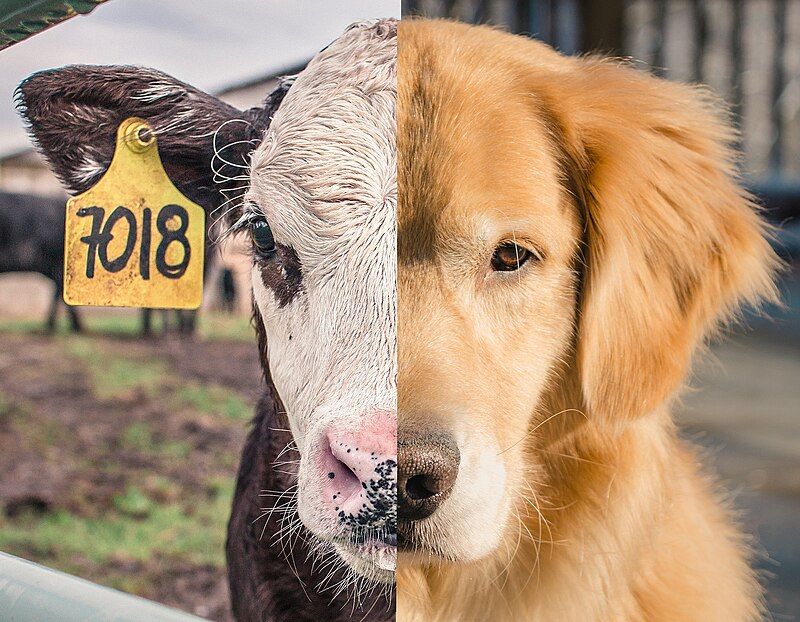Introduction
In recent years, calling a woman a “dog” has become a go-to insult for some men. This was evidenced in summer 2022 when rapper Tory Lanez called fellow rapper Megan Thee Stallion a “dog” on Twitter. The misogynistic insult sparked outrage and reignited the debate around derogatory language targeted at women. Though it may seem like just another crude hip-hop feud, the use of “dog” as a demeaning slur against women has much deeper historical roots.
Meaning and Intent
Calling a woman a “dog” is generally considered an insult in English, especially American English. It’s a demeaning term that is used to criticize a woman’s appearance or behavior.1 The intent is often to be cruel and cut a woman down.
Specifically, calling a woman a “dog” implies she is ugly or unappealing in her looks. It can also suggest she is promiscuous or has loose morals. Essentially, the term likens a woman to a female dog, which has very negative connotations.2
In addition, calling a woman a “dog” strips away her humanity and objectifies her by equating her to an animal. It is a way to dismiss, devalue, and dehumanize her.1 So when a man calls a woman a “dog,” his intent is often to be highly disrespectful and offensive.
History
Calling women dogs has a long and unfortunate history as a derogatory term.

References dating back to ancient Greece show dog being used as an insult toward both women and men. The term was used to describe someone exhibiting what were considered poor or immoral behaviors [1].
In the Bible, there are passages where Jesus refers to a Canaanite woman pleading for help as a “dog”, implying she is unworthy of his attention and favor [2]. This Biblical reference has been used to justify referring to women as dogs when they are seen as immoral or inferior.
The term “bitch”, meaning a female dog, has long been used as a derogatory slur toward women, playing on the comparison to a dog’s supposedly inferior status [3]. Calling women dogs or bitches strips them of human dignity.
Prevalence
Usage of this insult towards women unfortunately appears common. In a study cited by Reddit, it was found that female dogs tend to listen more often to women than men, suggesting there may be some truth in female preference. However, equating this tendency in dogs to justify calling women “bitches” or other canine terms remains highly inappropriate.

Data also shows that the term “bitch” and other derogatory language aimed at women occurs frequently online. One survey found that 25% of people reported seeing gender-based hate including sexist language at least once a week on social media sites like Facebook and Twitter. While prevalence varies by platform and demographic, the pervasive use of language like “bitch” to insult women points to ongoing gender bias and stereotyping.
Impact
Being called sexist slurs like “dog” can have serious emotional and psychological effects on women. Studies show that misogynistic language reinforces harmful gender stereotypes and causes distress. According to research by Felmlee (2020) from https://link.springer.com/article/10.1007/s11199-019-01095-z, sexist slurs on social media are often used to belittle and harass women, undermining their confidence and self-worth. These terms degrade women and portray them as inferior, leading to anxiety, anger, and depression. Sexist name-calling also perpetuates attitudes that women deserve mistreatment, further normalizing violence and abuse. The emotional turmoil from misogynistic language can linger for years and cause serious mental health issues if not addressed. Organizations recommend countering sexist speech, reporting online harassment, and seeking counseling to mitigate the psychological damage. While sticks and stones may break bones, words can also deeply hurt women subjected to vulgar and degrading slurs.
Link to Sexism
Calling a woman a dog reflects broader sexist attitudes that have been prevalent throughout history. The insult aims to degrade women by reducing them to the status of a canine, implying they are subservient, unclean, and beast-like (Srivastava, 2017). This metaphysical linkage between women and dogs has deep roots; witches were often depicted accompanied by black dogs and wolves as part of medieval European folklore. Labelling women as dogs is a modern manifestation of these attitudes.

The insult also perpetuates the view that women are less morally upstanding or virtuous than men. Dogs are seen as dependent, loyal, and obedient – characteristics that have been imposed on women through patriarchal norms. Calling a woman a dog is meant to put her in a subservient position and imply that her rightful place is at a man’s feet, like an obedient pet. This directly stems from and reinforces sexist attitudes that deny women full personhood and agency (Dictionary.com, 2018).
Changing Attitudes
In recent years, there has been a growing awareness around the prevalence and harms of sexist language. Campaigns like “See it. Name it. Stop it.” from the Council of Europe have worked to draw attention to how language shapes thought and reinforces discriminatory attitudes.

With the rise of feminism and women’s empowerment, pejorative words for women have increasingly been called out and rejected. There is now far greater recognition that terms like “bitch” and using female names as insults reflect and propagate sexist views.
Many style guides have been updated to recommend gender-neutral language instead of the generic “he” or terms like “mailman.” Academic institutions and workplaces are encouraged to avoid sexist terms. Public figures face backlash for using misogynistic language.
While sexist attitudes still persist, progress is being made. With more allies joining women in speaking out against misogynistic language, stigmatizing it as unacceptable in civilized discourse, there is hope for continually improving attitudes and behavior.
Advice for Women
When a man calls you a “dog” or other demeaning and sexist insult, it can be infuriating and hurtful. However, there are constructive ways to respond without escalating the situation.
First, evaluate your safety. If you feel physically unsafe, remove yourself from the situation immediately without responding (The Guardian, 2013). If you feel comfortable responding, here are some tips:
- Stay calm and take a deep breath before responding (WebMD, 2021). Don’t let your anger take over.
- Ask him to explain exactly what he means, which often exposes the irrationality of the insult (Womankind, 2022).
- Use humor to point out the absurdity or ignorance behind the insult (The Guardian, 2013).
- Politely but firmly tell him his language is inappropriate and will not be tolerated.
- Report severe or persistent harassment through proper channels if needed (Womankind, 2022).
The most important thing is maintaining your dignity while not tolerating sexist language. With practice, you can become more confident in responding effectively.
The Road Ahead
While sexist attitudes and language have improved in recent decades, there is still more progress to be made. Women continue to face sexism in various aspects of life, from the workplace to relationships and beyond (Cerbara et al., 2022). However, research shows that overt hostility towards women is declining, while more subtle forms of sexism like benevolent sexism persist (Barreto et al., 2023).
To create a truly equal society, we must challenge lingering sexist assumptions and stereotypes. This involves encouraging critical thinking from a young age about gender roles and expectations. It also requires speaking out against sexist remarks, even those disguised as compliments. With conscious effort, we can reshape social conditioning and create a culture of mutual respect.
Education and awareness campaigns will be key to the road ahead. By calling attention to the harms of benevolent sexism, we can help people identify and change patronizing attitudes. Companies and organizations should implement trainings on recognizing and preventing workplace sexism. Governments can promote gender-equal language in official communications. With persistence and care, we can continue building a world free of sexism.
Conclusion
The term “dog” when used to describe a woman has a long history rooted in sexism and the objectification of women. Though some may argue it is harmless slang, the word carries underlying tones of misogyny that we must acknowledge. We must also recognize the harm that such language can cause when it reinforces the perception of women as subordinate or inferior. However, change is possible. We must call out this problematic terminology where we encounter it and have open discussions on the implications. With greater awareness and more conscious language, we can shift cultural attitudes. Women deserve respect, not degrading slurs thinly veiled as harmless banter. The evolution of language is interconnected with the evolution of society. Our choice of words matters, and we can all play a part in creating more inclusive and compassionate communication norms.